At the 2025 SMM (2nd) Southeast Asia Automotive Supply Chain Conference hosted by SMM, Asst. Prof. Uthane Supatti Ph.D., Vice Chairman of the Electric Vehicle Association of Thailand (EVAT), shared insights on the topic of "Accelerating the Development of Thailand's EV Ecosystem".

Transformation of Transportation Modes in Thailand
Traditional transportation modes include speedboats, traditional buses, and traditional trains. After improvements, electric taxis, electric buses, and electric motorbike taxis emerged. Following electrification, subways, trams, and electric boats have also come into view.
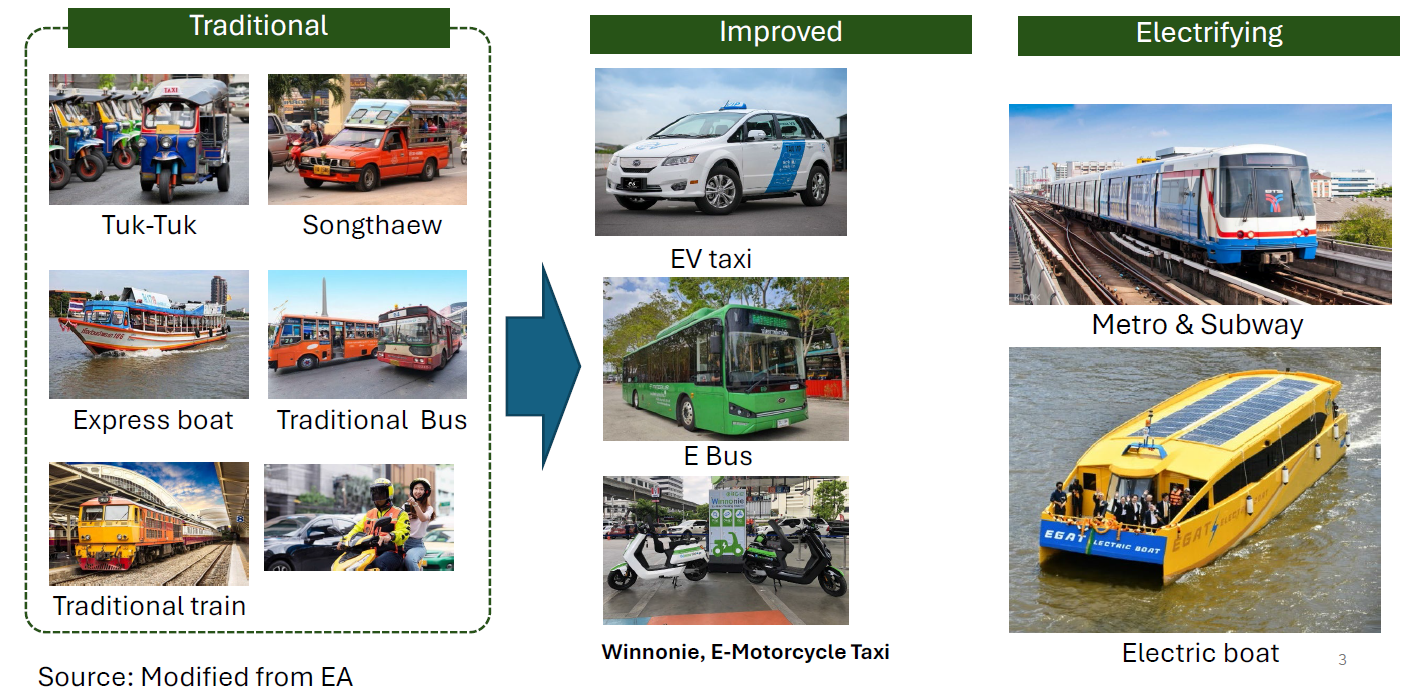
Thailand's EV Vision - The "30@30" Policy
Thailand has set EV adoption and production targets for 2025 and 2030. By 2030, the following goals will be achieved: zero-emission vehicles will account for 30% of Thailand's total car production; zero-emission vehicles will account for 50% of the country's total car usage.
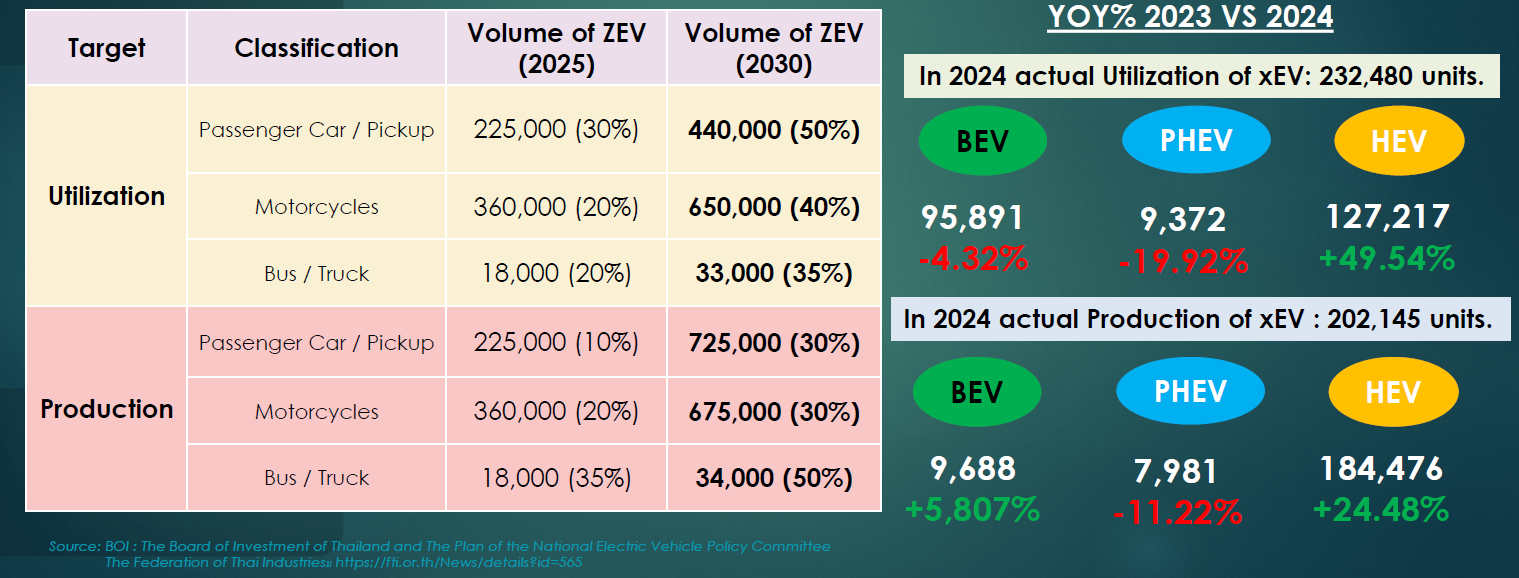
Passenger Car Production:
As of 2024, Thailand's total sedan production reached 1,468,997 units, down 20% YoY. Among them, passenger car production was 558,440 units, down 13.5% YoY; BEV passenger car production was 9,688 units, surging 5,807.3% YoY.
Expansion of EV Manufacturing Investment in Thailand
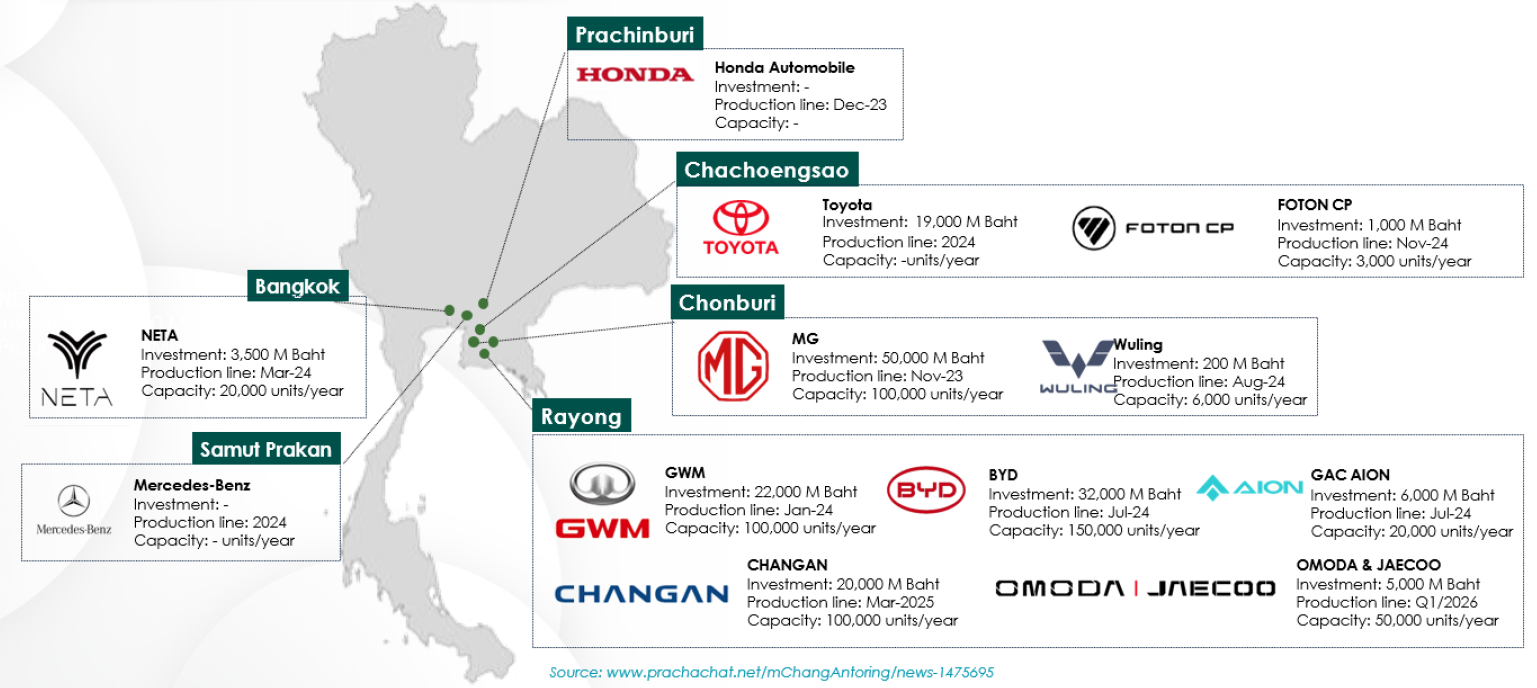
The planned maximum EV production capacity exceeds 500,000 units per year.
EV Market Share in Thailand's Passenger Car Market (2019-2024)
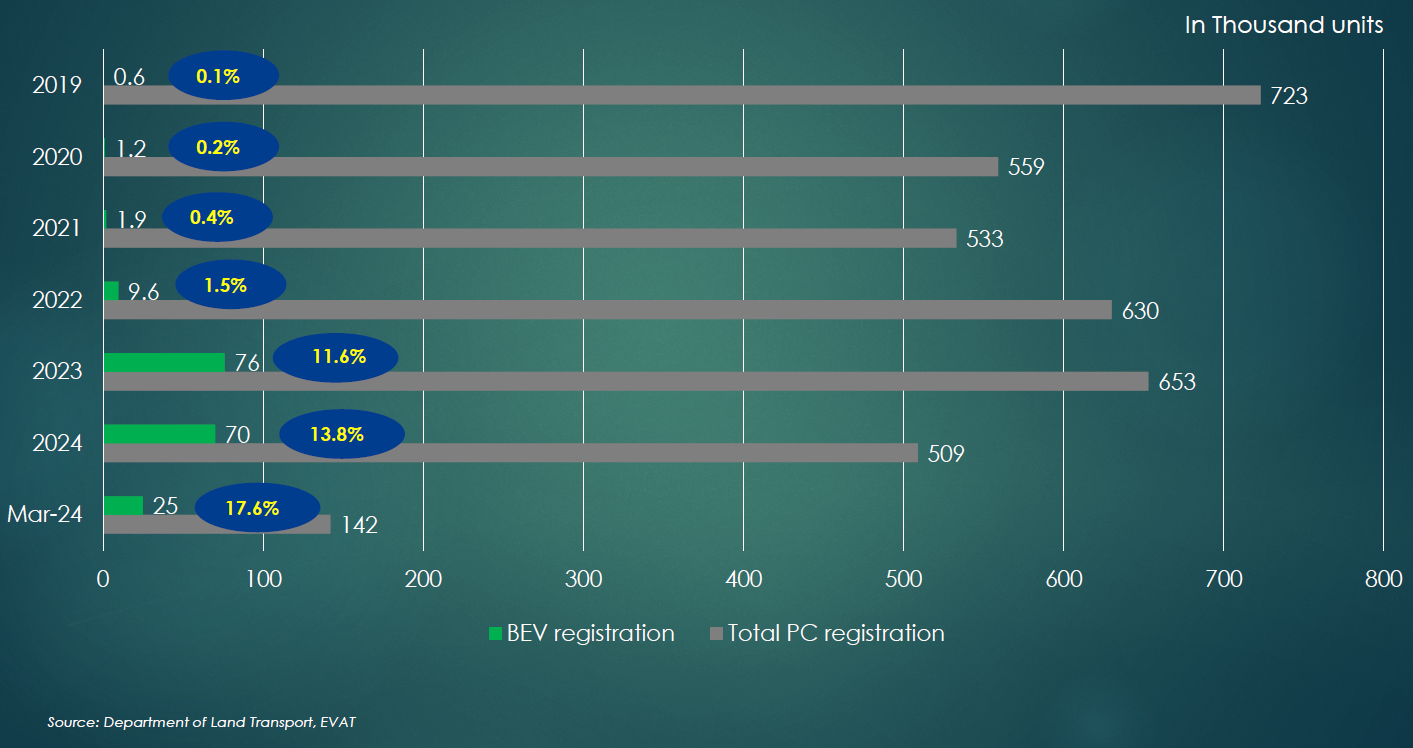
The share of EVs in Thailand's passenger car market has been increasing year by year, reaching 13.8% by 2024.
Number of BEV Models Available for Sale as of January 2025:
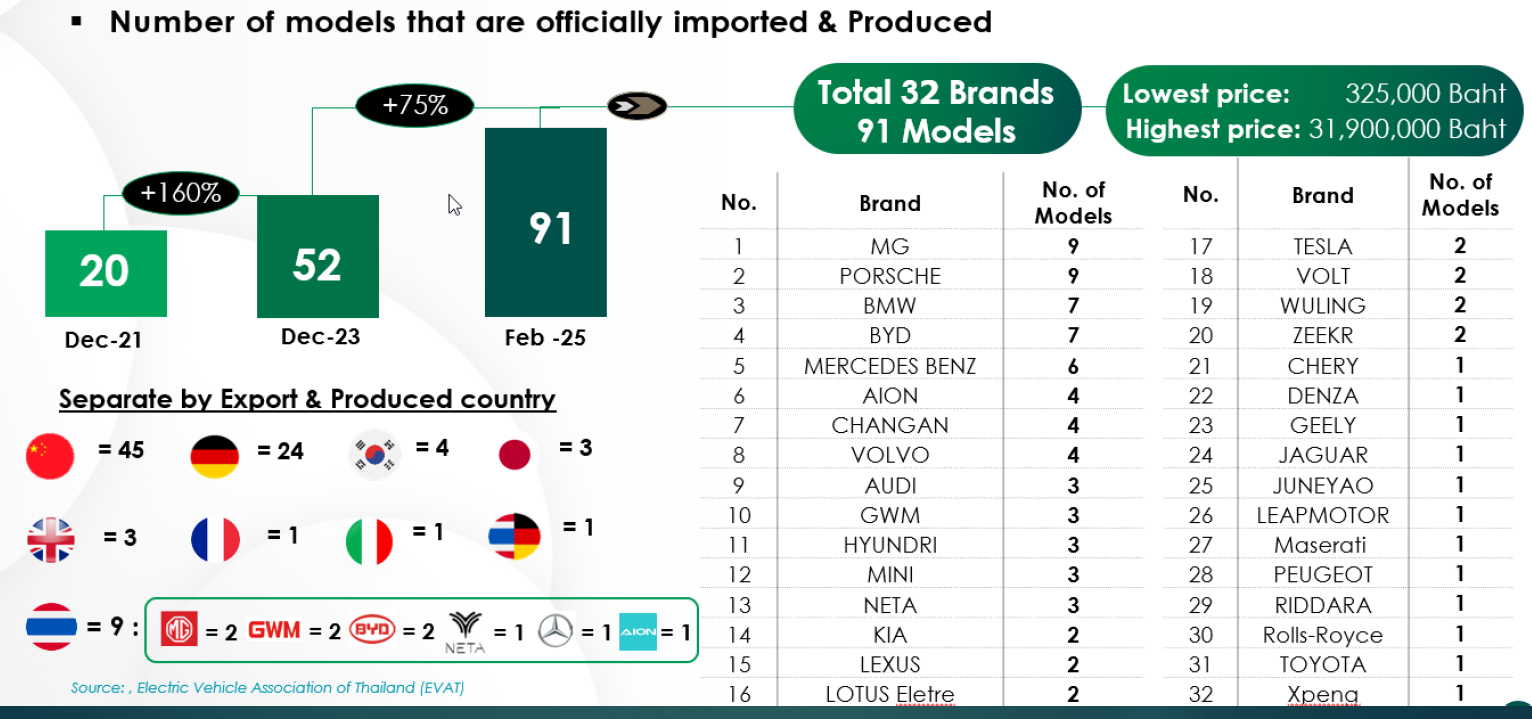
Charging Infrastructure - Number of DC Charging Piles

After 2023, the deployment of charging piles has reached a significant turning point. Data shows that the number of charging piles increased by an astonishing 306.2% YoY in 2023.
By 2023, the number of charging piles had already surpassed the original 2025 target. However, there is still significant room for improvement to achieve the 2030 target, requiring continued construction efforts.
Electric Motorbikes
According to public data, the cumulative annual registration of electric motorbikes in Thailand (as of December 2024) was 63,158 units.
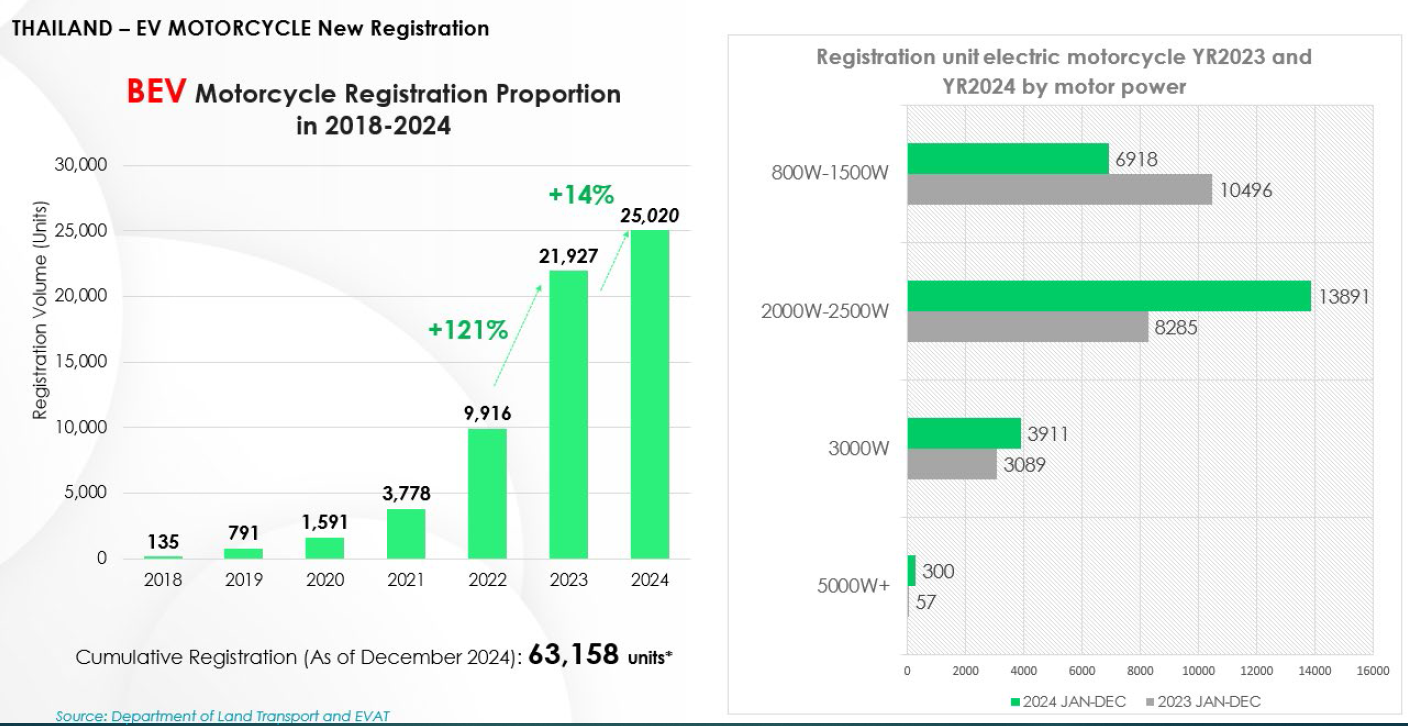
Promoted EV Equipment Projects (Excluding Batteries)
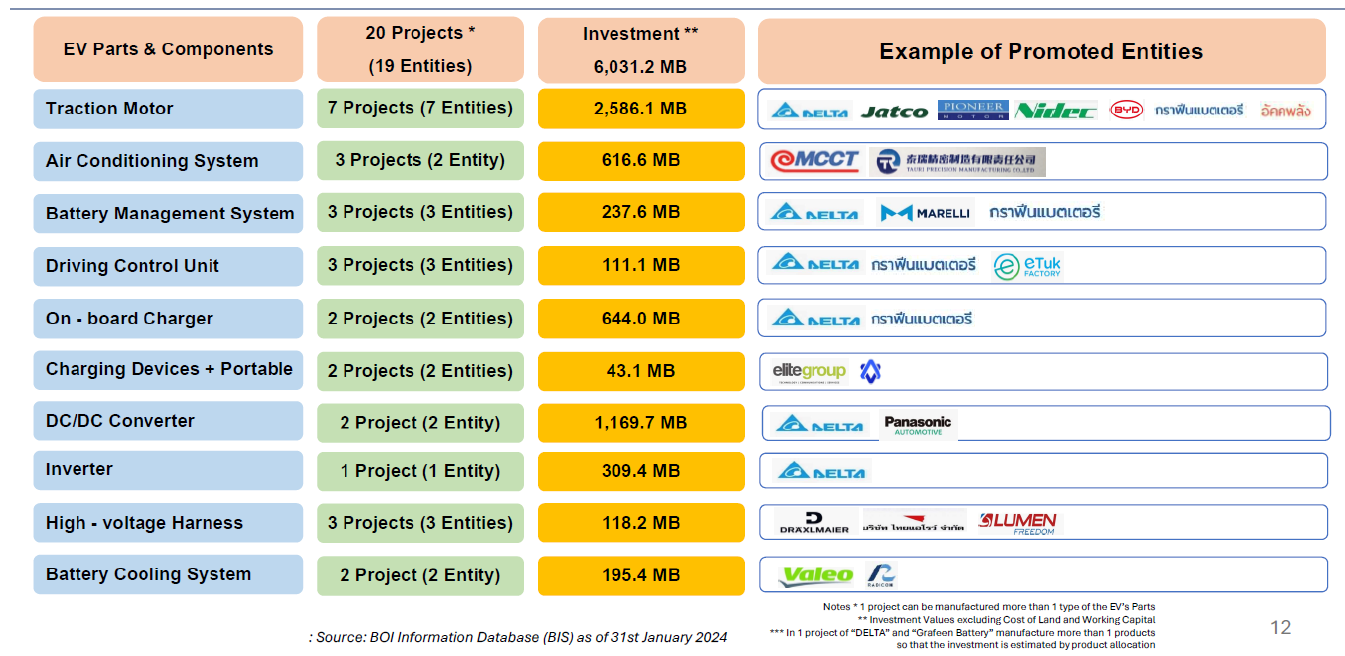
Promoted Battery Projects
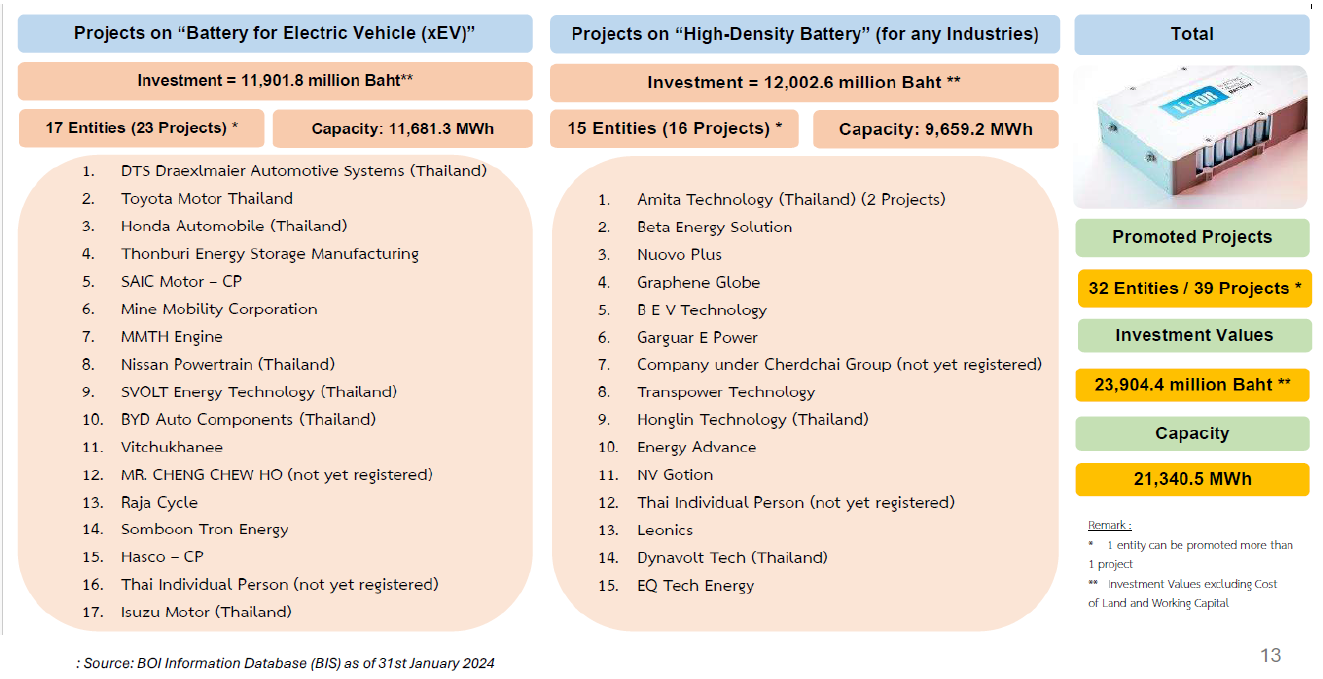
Thailand's EV Battery Ecosystem - Investment Potential in Battery Reuse and Recycling in Future Periods
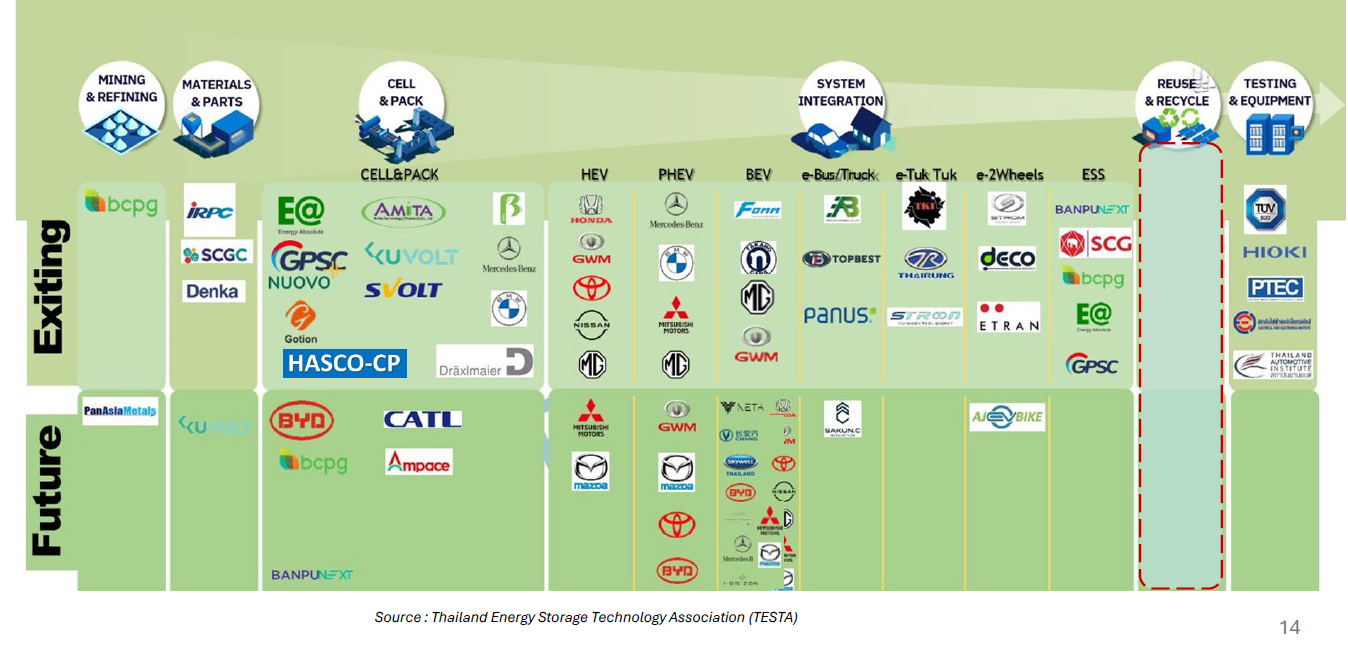
Automotive Parts Situation as of September 2024
As of September 2024, the production of automotive parts has significantly declined, with the Manufacturing Production Index (MPI) decreasing by 8.8% YoY. This data continues the trend of a 17.7% YoY decline in automobile production and a 12.3% YoY decline in motorcycle production, reflecting the industry's shift towards EVs. This includes the adoption of EV 3.0 and EV 3.5 measures to boost EV production and imports. Despite this, the spare parts market is expanding due to an increase in the registration of vehicles aged five years and older. The automobile spare parts market grew 4.3% YoY, while the motorcycle spare parts market also increased 2.3% YoY, primarily because the prolonged sluggishness of past purchasing power has extended the lifespan of older vehicles.
On the other hand, the export value of automobile parts declined 0.5% YoY, particularly with internal combustion engine exports falling 16.0% YoY, a trend consistent with global automakers' strategies to increase EV production.
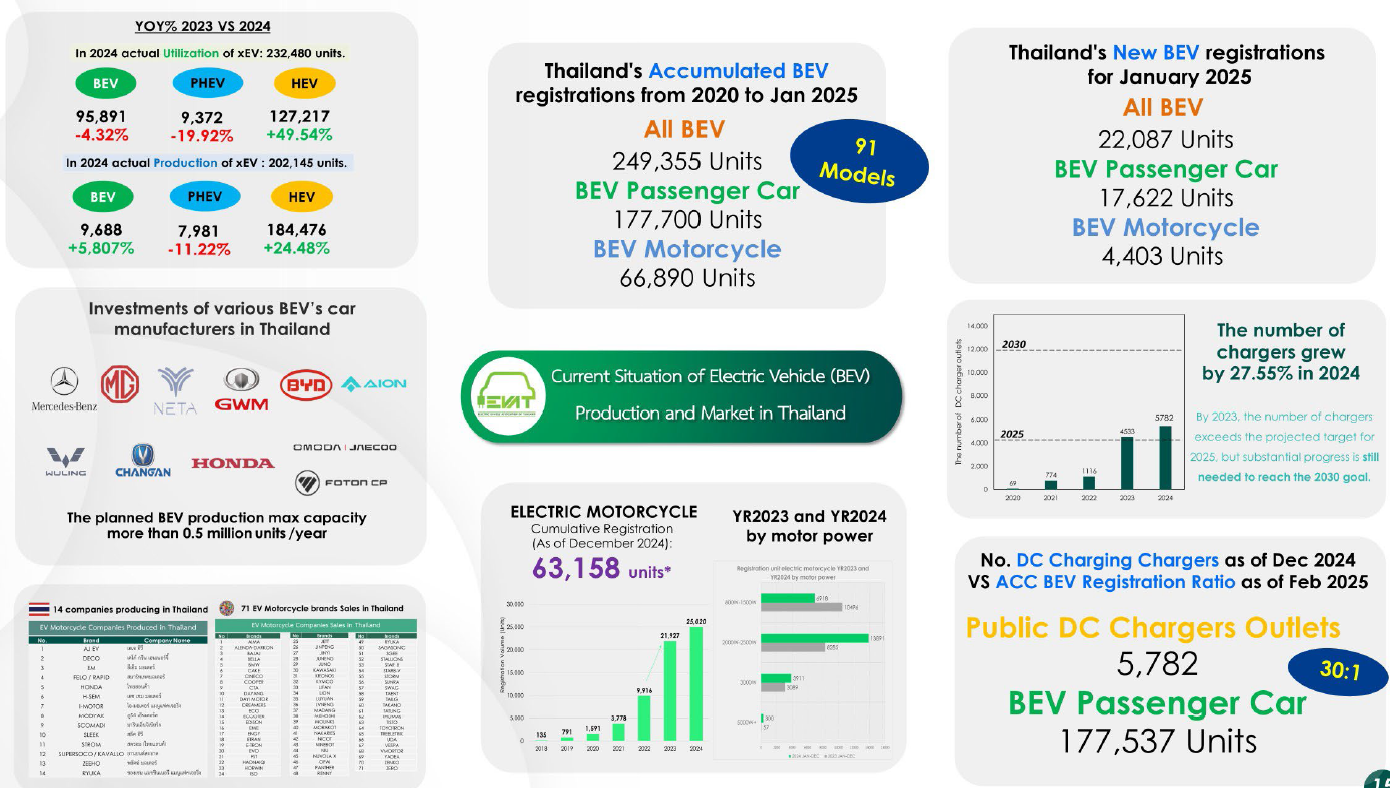
》Click to view the special report on the 2025 SMM (2nd) Southeast Asia Automotive Supply Chain Conference